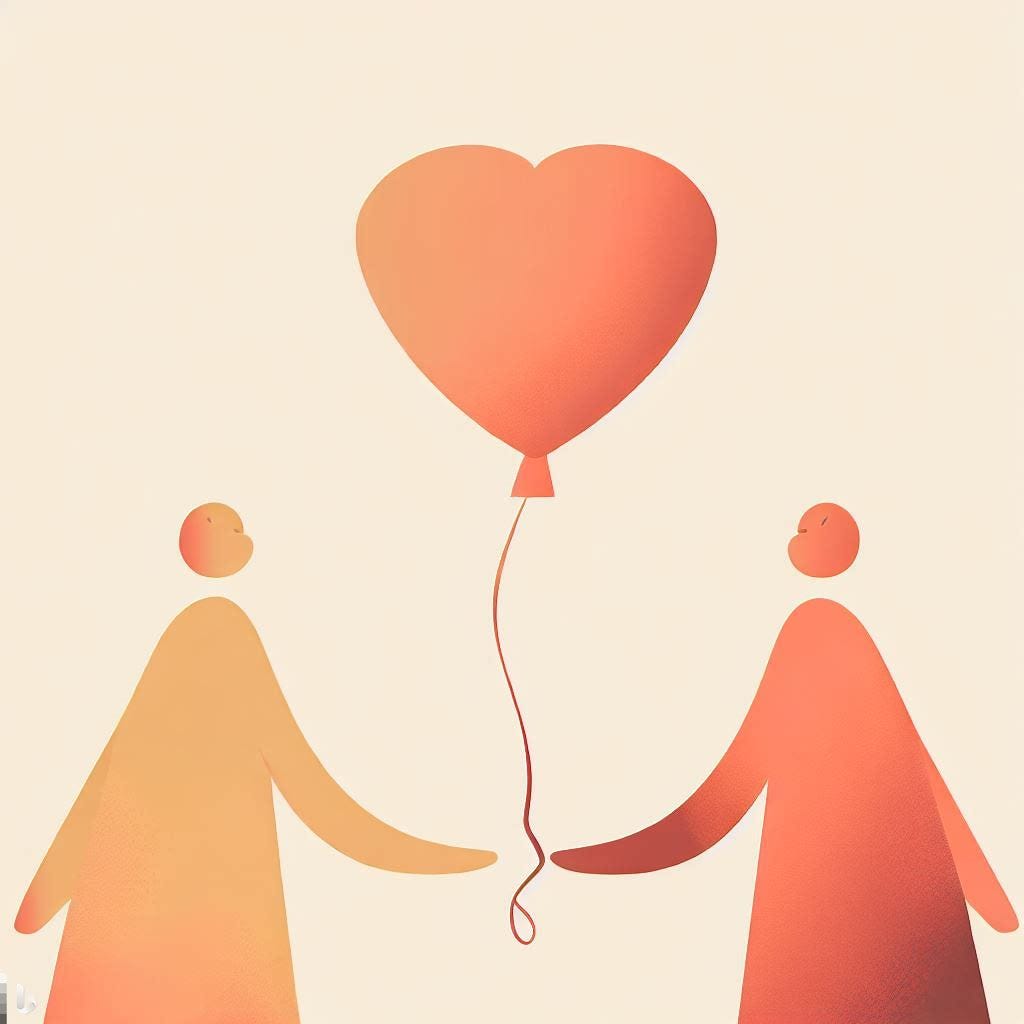The Psychology of Kindness: More Than Just a Good Deed
More Than Just a Good Deed
Acts of kindness can sometimes be overlooked; however, the psychology behind these simple gestures is profound and deeply rooted in our evolutionary history. Kindness, defined as a benevolent and helpful action intentionally directed towards another person, is not just a moral virtue but a key to understanding human behaviour and societal cohesion.
Understanding Kindness
Kindness, at its essence, is about forging connections. It's a bridge between souls, a gesture that communicates understanding, empathy, and compassion. But what indeed lies at the heart of this simple act? Why are we, as humans, inclined to be kind, and what does it reveal about our nature?
Historically, humans have been social creatures. Our ancestors lived in close-knit communities, relying on each other for survival. In such settings, acts of kindness and cooperation weren't just moral choices but necessities. Sharing food with a neighbour or aiding a fellow tribe member in times of need ensured the community's collective well-being. Over time, these acts of goodwill became ingrained in our social fabric, evolving into what we now recognize as kindness.
Our brains are hard wired to respond positively to kindness. Neurological studies have shown that witnessing or participating in acts of kindness releases oxytocin, often called the "love hormone." This promotes feelings of warmth and connection and strengthens social bonds. It's as if our very biology encourages us to be kind.
Culturally, kindness is celebrated across civilizations. From ancient scriptures to modern-day tales, stories of selflessness and compassion have always resonated with people. These narratives underscore the universal appeal of kindness, transcending geographical, cultural, and temporal boundaries.
On a more introspective level, kindness offers a mirror to our vulnerabilities. When we extend a helping hand, it's often because we recognize the fragility of the human condition. We've all faced moments of despair, loneliness, or uncertainty. Kindness, in many ways, is an acknowledgment of these shared experiences. It's a silent nod that says, "I see you, I understand, and I'm here for you.
In the grand tapestry of human emotions, kindness is a testament to our capacity for love, empathy, and altruism. It's a beacon that guides us, especially in turbulent times, reminding us of the innate goodness within us all.
The Ripple Effect of Kindness
Kindness, often perceived as a simple, fleeting gesture, has a profound ripple effect that extends far beyond the immediate moment. Its impact can resonate not only in the hearts of those directly involved, but can also influence entire communities, creating a domino effect of goodwill.
For the individual performing the act, the benefits are immediate and tangible. The brain releases a cocktail of feel-good chemicals, including serotonin and dopamine, leading to what we often term the "helper's high." This euphoric feeling can lead to increased happiness, reduced stress levels, and a more optimistic outlook on life. Over time, consistent acts of kindness can even rewire the brain, making individuals more predisposed to seek opportunities to help others.
For the recipient, the effects can be transformative. A single act of kindness can act as a beacon of hope, reducing feelings of isolation, despair, and loneliness. It can restore faith in humanity, especially during challenging times. Those shown kindness are more likely to pay it forward, perpetuating a cycle of positivity.
Beyond the individual level, kindness has the power to reshape communities. When acts of kindness become commonplace, it fosters a culture of empathy and understanding. Trust and bonds strengthen, and a sense of unity emerges. Communities prioritizing kindness often report lower crime rates, increased civic participation, and improved well-being.
The ripple effect of kindness can also bridge societal divides. In a world where differences are often magnified, kindness is a universal language that transcends borders, cultures, and beliefs. It reminds us of our shared humanity and the fundamental truth that we all seek love, understanding, and connection at our core.
The ripple effect of kindness is not just a phenomenon; it's a powerful force for change. No matter how small, each act sends waves of positivity that can transform lives, communities, and, ultimately, the world.
Personal Reflections
I recall a personal anecdote that underscores the power of kindness. During a challenging time in my life, a stranger's simple act of paying for my coffee left an indelible mark. It wasn't about the coffee; it was the message behind it: "You're not alone." This gesture, minor but profound in impact, shifted my perspective and reminded me of the interconnectedness of our lives.
Challenges to Kindness
Despite its benefits, kindness is not always the default choice. Fear, prejudice, or sheer indifference can act as barriers. In an increasingly digital age, where interactions often lack face-to-face connection, the impetus to be kind might diminish. However, it's crucial to remember that kindness is not a finite resource. The more we give, the more it grows.
Let’s Be Kind
Understanding the psychology of kindness is not just an academic exercise; it's a call to action. Each of us holds the power to make our world a little brighter, a little kinder. Start small. A smile, a compliment, or a helping hand can create a chain reaction. As the adage goes, "Throw kindness around like confetti."
Kindness is more than just a good deed; it reflects our evolutionary past, a tool for positive change, and a bridge to a more compassionate future. Let's embrace it, not just as an act, but as a way of life. Remember, in a world where you can be anything, be kind.


